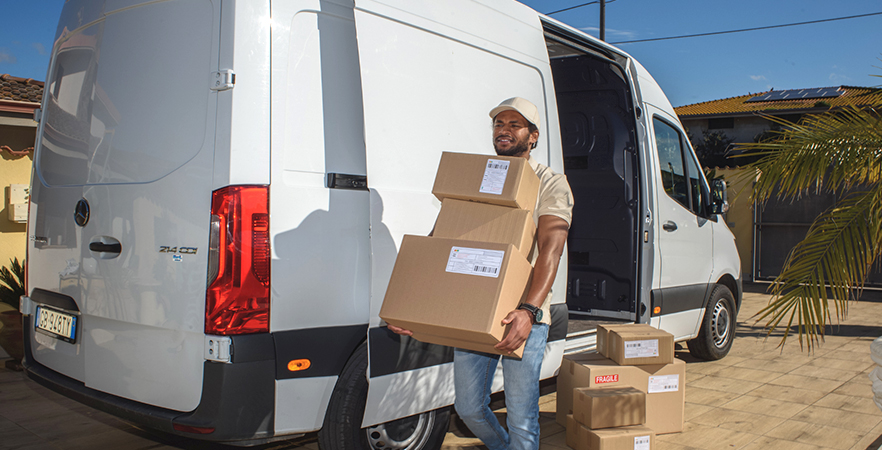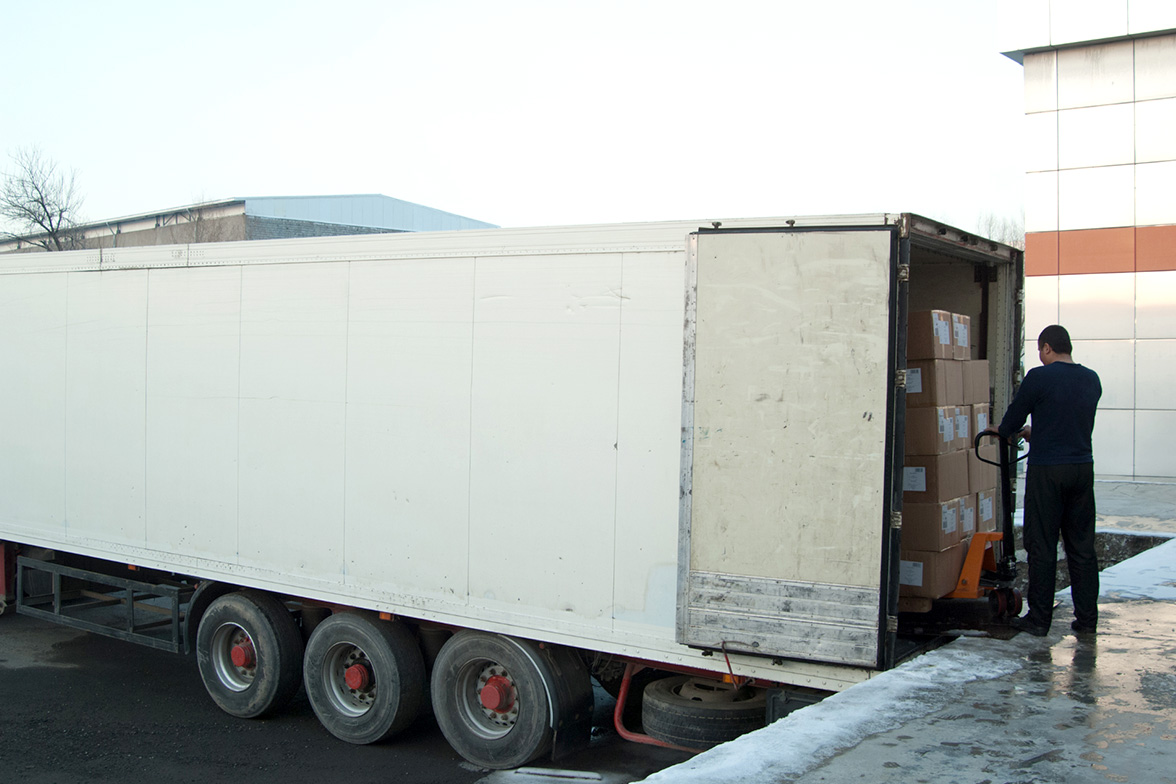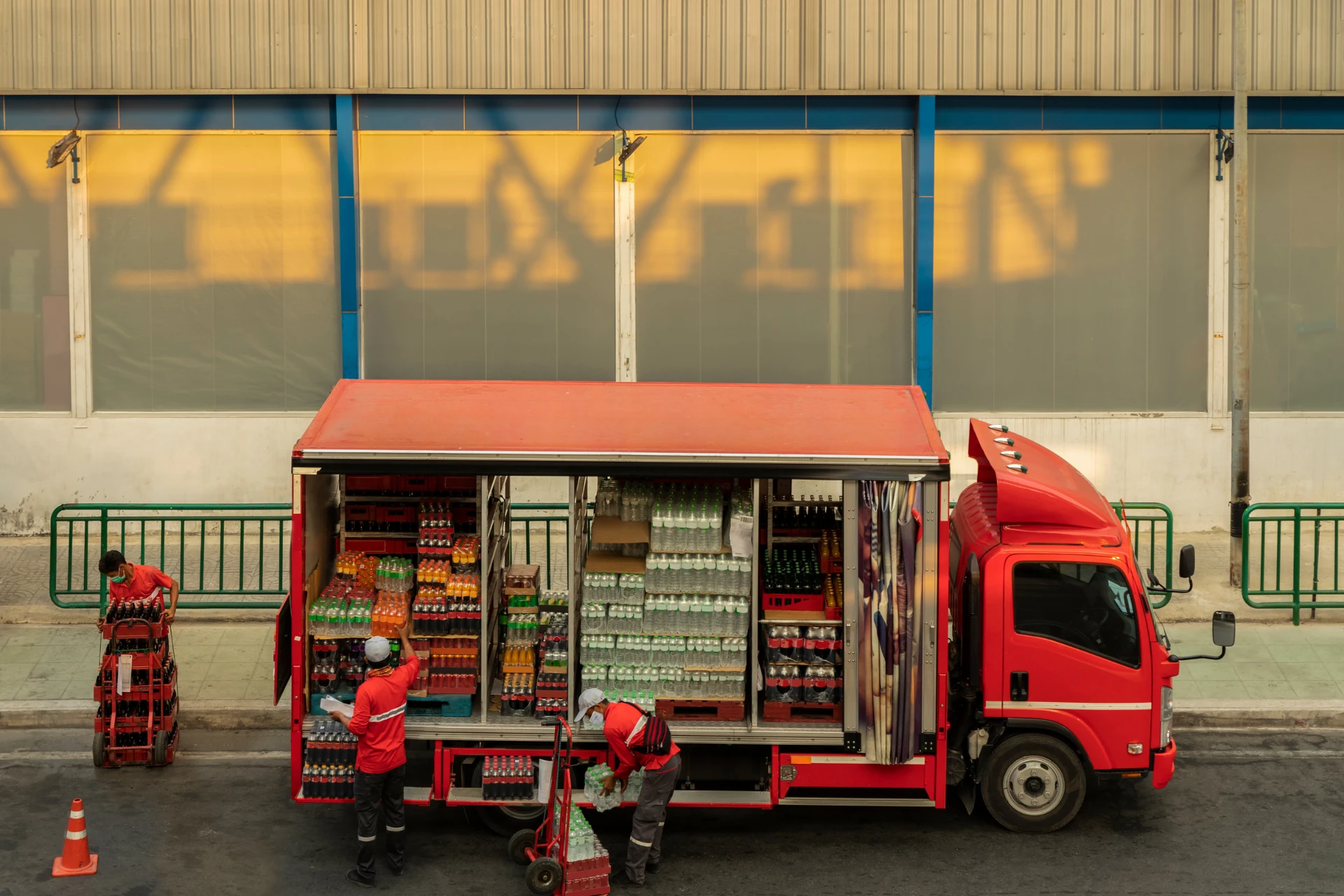Table of Contents
Join our
Mailing List
Stay up-to-date with BREW MOVERS latest news and service offerings.

Parcel vs. LTL Shipping Comparison
Published Date: 30 June 2024
.content table { font-family: Montserrat;}table tr td { background-color: #fff;} .td-background{ background-color: #152b55;}.single-wraper table a { font-size: 14px !important;}
Choosing the right shipping method is crucial for timely and cost-effective delivery. Whether you’re a craft brewery, winery, or a beverage distributor, understanding the differences between parcel and less-than-truckload (LTL) shipping is important.
Each option offers distinct advantages and potential challenges, depending on your business needs, shipment size, and destination. In this article, we’ll break down the key differences of parcel vs LTL freight shipments, helping you make informed decisions that align with your logistics strategy, and ensure your products reach their destination efficiently and intact.
What is Parcel Shipping?
Parcel shipping involves the transportation of smaller packages, typically weighing less than 150 pounds and within specific dimensions. This shipping method is ideal for individual packages or boxes, and is commonly used for e-commerce orders, documents, and smaller shipments. For beverage businesses, parcel shipping is ideal for sending smaller quantities or products directly to customers or retail outlets.
Parcel vs LTL shipping offers several advantages. It’s generally faster than other shipping methods, with options for overnight and even same-day delivery. Detailed tracking information allows you to monitor your shipment’s progress throughout its journey. Additionally, parcel shipping is often convenient, with various drop-off locations and pickup options available.
However, parcel shipping has limitations. There are strict weight and size restrictions, and shipping costs can increase significantly for larger or heavier packages.

Image Source: Canva
What is LTL Shipping?
Less-than-truckload shipping is ideal for shipments that are too large for parcel shipment services but don’t fill an entire truck. These shipments typically weigh between 150 and 15,000 pounds. LTL carriers usually consolidate multiple shipments from different shippers onto a single truck, sharing the transportation costs.
LTL vs parcel shipping offers several advantages. It’s generally pretty cost-effective as you only pay for the portion of the truck your freight occupies. Additionally, LTL freight shipping can handle heavier and oversized items that parcel carriers cannot accommodate.
However, LTL shipments also have their limitations. Transit times tend to be longer compared to parcel shipping due to the need to consolidate and transfer shipments between different terminals. Moreover, tracking information for LTL vs parcel shipments may not be as detailed or as readily available as with parcel services.
→ Related Article: How to Save On LTL Freight Shipping Costs
Parcel vs. Freight Shipping Comparison Chart
Choosing between parcel vs LTL shipping depends on various factors, including shipment size, weight, budget, and delivery timeframe. Here’s a comparison of key differences between LTL and parcel shipping process.
| Parcel Shipping | LTL Shipping | |
|---|---|---|
| Weight and Dimensions | Typically handles packages weighing less than 150 lbs and within specific dimensions. | Accommodates shipments weighing between 150 and 15,000 lbs with varying size limitations. |
| Cost Factors | Base rates are often calculated on package dimensions and weight. Additional charges may apply for residential delivery, fuel surcharges, and accessory fees like delivery to remote areas, and liftgate service. | Costs are determined by weight, dimensions, and distance. Base rates, fuel surcharges, accessory fees, and density charges can impact the total shipping cost. |
| Transit Times and Delivery Options | Offers faster delivery options, including overnight and next-day services. | Typically has longer transit times due to the consolidation of shipments. Delivery options may be limited compared to parcel shipping. |
| Tracking and Visibility | Provides detailed tracking information, allowing you to monitor your shipment’s progress throughout the journey. | Tracking information may be less detailed, with updates provided at key points in the shipping process. |
| Insurance Coverage | Offers standard insurance coverage, with additional options available for increased protection. | Typically requires additional insurance coverage for shipments exceeding a certain value. |
| Handling and Damage Claims | Carriers have established procedures for handling damage claims. | Damage claims may be more complex due to the shared truckload environment. Detailed documentation is essential for successful claims processing. |
The Benefits of Working with a 3PL Provider
Outsourcing your logistics operations to a third-party logistics (3PL) provider can streamline your business processes and enhance supply chain efficiency. Here are some key benefits:
- Cost Savings: 3PLs often negotiate better rates with carriers due to their volume, leading to potential cost reductions. Additionally, outsourcing logistics can eliminate the need for in-house infrastructure and personnel, resulting in significant savings.
- Parcel vs LTL Shipping Expertise: 3PLs can help businesses understand and leverage the benefits of both LTL and parcel shipments, optimizing shipping costs and delivery times based on specific needs.
- Expertise and Scalability: 3PLs possess in-depth knowledge of the logistics industry and can handle fluctuations in shipping volume with ease. They offer flexibility and scalability to accommodate business growth or seasonal changes.
- Focus on Core Competencies: By outsourcing logistics, businesses can focus on growing their business through product development, marketing, and sales. This allows for increased productivity and innovation.
- Improved Customer Satisfaction: 3PLs specialize in logistics and often provide faster and more reliable delivery services, leading to improved customer satisfaction.
- Access to Technology: Many 3PLs invest in advanced technology and software solutions for inventory management, tracking, and route optimization, providing businesses with valuable insights and tools.

Image Source: Canva
Optimize Your Craft Beverage Shipping Strategy
Choosing between parcel vs LTL shipping can be a headache—but it doesn’t have to be. Working with a shipping and logistics expert like Brew Movers can make a big difference!
Our team brings years of expertise in moving freight for the craft beverage industry. With an extensive and trusted carrier network, we help new breweries get set up and established breweries thrive. Whether you need efficient parcel shipping for smaller orders or cost-effective LTL shipping for larger deliveries, we’ve got you covered.
With over two decades of logistics experience, we have the knowledge, connections, and passion to assure our clients the most competitive rates and industry-leading service, guaranteed!
Contact us today to discover how Brew Movers can streamline your shipping operations, optimize shipping costs, and keep your business growing.




